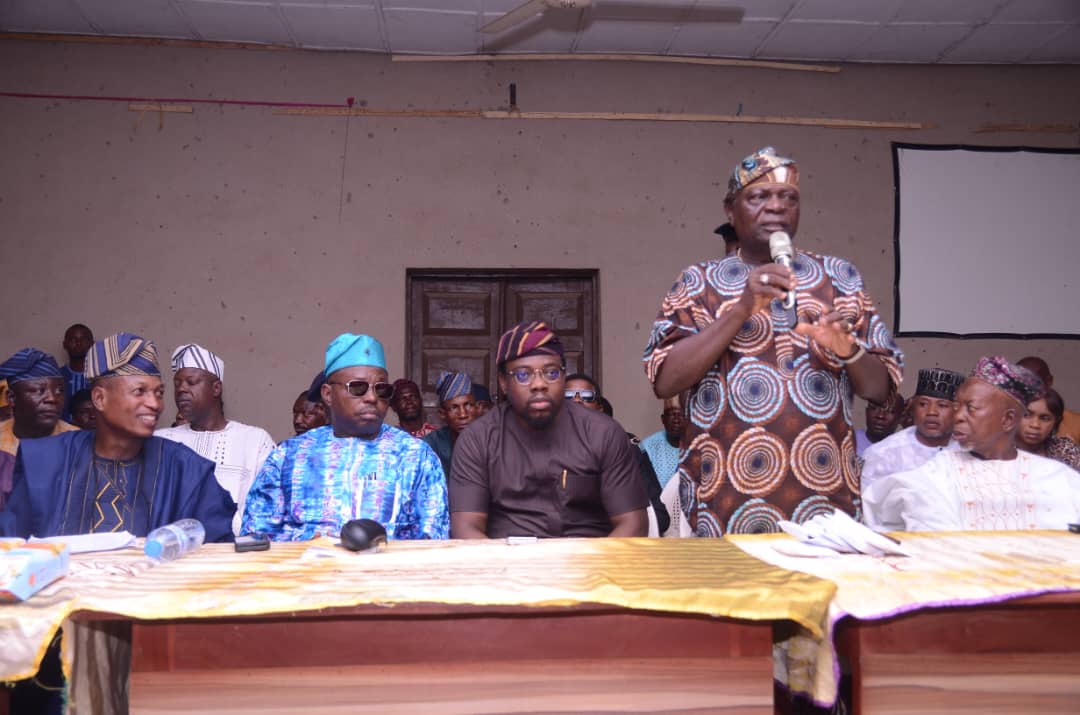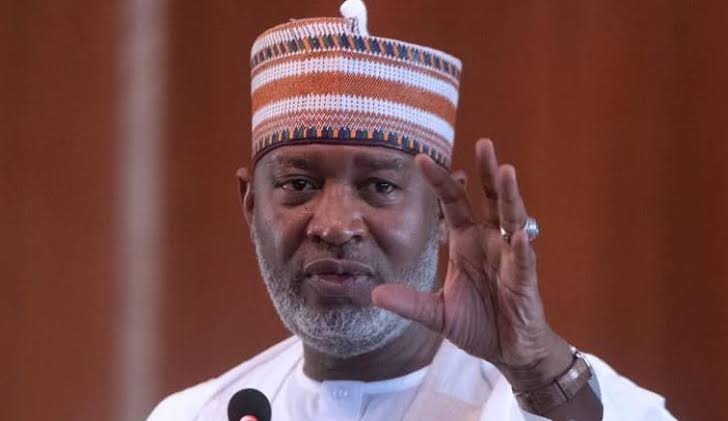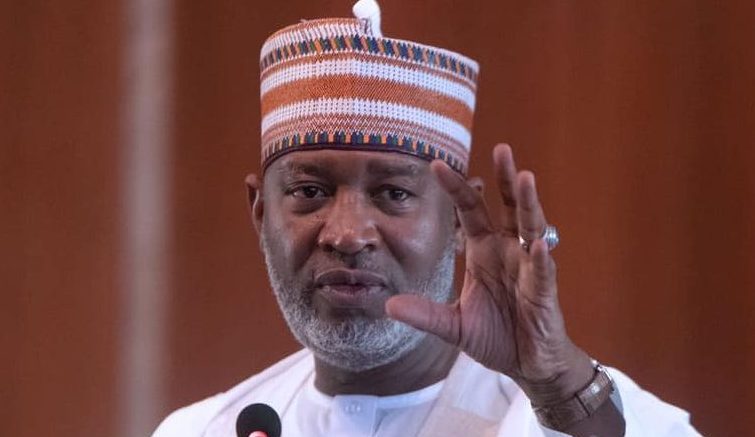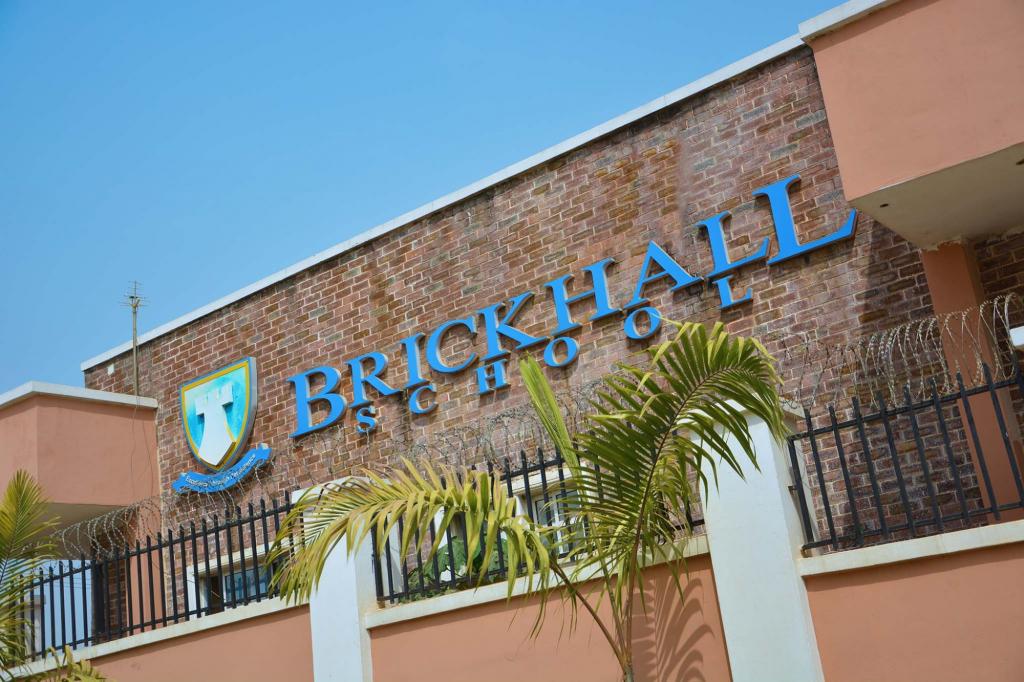Early Life
He would have turned 95 on 27 September, 2020, but death, the end of all mortals, aborted his life on Wednesday, 25 July, 2020. No doubt, Ayo Fasanmi lived long and lived very well. He was committed to mother earth on Tuesday, 4 August, 2020. Ayo Fasanmi belonged to the first generation of nationalists like Chief Obafemi Awolowo, Samuel Ladoke Akintola, Anthony Enahoro, Michael Adekunle Ajasin, Alfred Rewane among others.
Ayo Fasanmi was born in Lagos on 27 September, 1925. His father, a mason, hailed from Iye-Ekiti, while his mother, a trader, was the Eiyegun of Ijero Ekiti, the most senior Chief among women in Ijero-Ekiti. He began his elementary education at St. Paul’s School, Ebute-Metta, Lagos, in 1931. At the early stage of his educational odyssey, Ayo encountered a setback when he had to drop out in Standard One in 1935, because his parents were too poor to pay his school fees. He was only fortunate to be rescued by his father’s uncle, Williams Fasanmi, who decided to foster him. Consequently, in March 1937, Williams took the young Ayo along with him to Ibadan where he continued his education. He later attended St. Mark’s School, Offa, in present-day Kwara State, between 1937 and 1939. It is also on record that he made a stint at a school in Kafanchan, Kaduna State, where he had relocated with his father’s uncle upon the latter’s transfer. He eventually completed his primary education at St. Marks School, Offa, in 1941.
Ayo Fasanmi and the Government College, Ibadan
As a mark of his exceptional academic qualities, Ayo emerged with the overall best performance in the Common Entrance Examination and won a full scholarship award at the Government College Ibadan (GCI) which covered his tuition, books and boarding, throughout his five years sojourn between 1942 and 1947. At GCI, owing to the influence of his foster parent, Ayo was registered as Ayo Williams and was addressed as same until after his graduation from the school. He was a member of the Grier House with one Ogunbanwo as the Head. The Head boy in 1942 was Audiferen. Ayo recalled that E.A Ifaturoti, later Chief Mining Engineer at the Federal Ministry of Mines was one of his school prefects. Other big boys of the school were Fadahunsi, Obembe and Ukpoma. His School Principal was Mr. V.B Powell. One of his teachers at GCI was Gabriel Akinola Deko, popularly known as Akin Deko, a teacher of applied mathematics and mechanics.
At the school, he struck life-long relationships with Tunji Otegbeye and Frederick Jaiye Falodun. Ayo was nicknamed “Offa Boy”, a moniker suggesting the place of his pre-secondary education, and given the testimony of Tunji Otegbeye, “Ayo was perhaps the biggest rascal of their days.” Ayo was also an accomplished footballer and, in fact, represented Nigeria in 1945. He played for some time as an outside right. Otegbeye also recalled that “Ayo Williams used to act the part of Robert, the leader of the strike, and a great rebel he has been ever since.” His dexterity in leadership equally manifested when he served as the Food Prefect and also as the editor of the school Magazine, Swam Echo, during their days at the College. Similarly, Otegbeye alluded to Ayo’s academic prowess, corroborated by his records as the most outstanding performer in History and Literature. Otegbeye was “his close second as the result of their Cambridge Certificate Examination.”
One noteworthy aspect of Government College life that Fasanmi recalled vividly was the relationship he cultivated with some old boys from Igbobi College, a school which was then temporarily stationed in Ibadan in the early forties. Some of the old boys he bonded with during the period included Teddy Nelson, H. Harper and Adeboye Babalola who later rose to become a distinguished Professor of African Studies at the University of Lagos. Adeboye Babalola was remembered as a very powerful debater and highly skilled in oratory. While at GCI too, Fasanmi and Franklin Oritsemueyiwa Atake of Ibadan Grammar School also laid the foundation of lasting and robust relationship. Atake later became one-time High Court Judge in Mid-Western State (later Bendel State and a Senator of the Federal Republic of Nigeria).
In a more fundamental sense, Government College Ibadan, moulded the life of Fasanmi and his colleagues as highly disciplined, morally upright, and cultured people. The school also had positive impact on their character formation and personality development. Tunji Otegbeye was more forthcoming about this fact: “There was the general atmosphere of disciplined life with every minute allocated to doing something creative. There was the fear, the distaste to be ‘booked down’ in the conduct sheet and to appear before the housemaster or Principal for any question. This encouraged everybody to be at his best behavior at all times and to accept certain standards of dos and don’t’s. The atmosphere of Government College in those days was that of a small commune. Everybody wore the same uniforms, ate the same food and lived together in real brotherhood. The rich could not show off their riches, the poor their poverty… opportunity was equal in every respect. Then there was the large scope afforded to students to manage their own affairs, this developed a high sense of responsibility in the individual.”
Like a vast majority of his contemporaries, Ayo Fasanmi’s political consciousness had gradually evolved from his days at the GCI. He had earlier in life, distinguished himself as an avid reader of the West African Pilot, a nationalist newspaper established by Dr. Nnamdi Azikwe which became a pivotal tool for canvassing nationalist ideals of colonial freedom, liberation struggle, welfarism and socialist democracy. The newspaper greatly influenced his political worldview and aroused his Pan-African consciousness. He was also familiar with the writings and political views of Zik of Africa, Mbonu Ojike, Nwafor Orizu, Mokwugo Okoye and Osita Agwuna. Some of his contemporary “radical” student leaders at GCI included Chief Kola Balogun, who was two years ahead of him; Abiodun Aloba and Tunji Otegbeye. Remarkably, these radical students had begun to play prominent roles in Nigerian politics since their days at the College. Whilst Kola Balogun, Biodun Aloba and others floated the Zikist Movement in 1946, Tunji Otegbeye, Fasanmi and his group founded the Nigerian Youth Congress (NYC). The NYC was a pro-labour and socialist oriented organisation with a “Progressive” ideology. Indeed, the political ideas of the NYC were similar to the viewpoints espoused by the Zikist Vanguard and the Socialist Workers and Farmers Party. The NYC played prominent roles in mobilising youths for organized protests after the murder of Patrice Lumumba. It was also a key player in the withdrawal of Nigeria from the Anglo-Nigeria Defence Pact.
The Home Front
Ayo Fansanmi spent the first thirteen years of his life in Lagos, Ibadan, Kafanchan, Offa and Osogbo with no knowledge of the geography of Ekiti homeland. For inexplicable reasons, Fasanmi was determined to marry a woman from Ekiti. In 1940, he paid his first visit to his communal homeland, Iye Ekiti and Ijero Ekiti. Through one of his friends, Victor William (later Prof. Victor Williams), he eventually met Felicia Adejoke, a student of Queens College, Lagos, and later a UK trained Nurse. Fasanmi recalled their first encounter “…. I cannot describe what attracted me to her. She was a very modest and a pretty young girl. I made my intention known to her after one year of courtship”. Ayo Fasanmi and Felicia Adejoke eventually tied the knot in 1953.
Despite his several commitments, Fasanmi never compromised his love and dedication to his family. He was a loving husband to his wife, Adejoke, with whom he had walked down the aisle since 1953. Sadly, Adejoke’s transition to immortality came earlier in 2014. He was also a good father to his children.
Fasanmi was blessed with six children, three females and three males. The eldest, a son, was named Ayo Fasanmi but he predeceased his father. The first daughter Funmilayo graduated from Ahmdu Bello University with First Class Honours Degree in Pharmacy and worked for some time at Obafemi Awolowo University, Ile-Ife, before her relocation to the United States 21 years ago. The other two ladies are also based in the United States. The two surviving men are: Obafemi Fasanmi, a Judge in Ekiti State Judiciary and Folabi Fasanmi, a geoscientist and the last child.
Ayo Fasanmi and the Politics of the First and Second Republic
With the formation of the Action Group in March 1951 by Awolowo and some Yoruba elites and Obas, Fasanmi was endeared to the leadership roles of Chief Awolowo and the ideals of “Life More Abundant” slogan of the Action Group. He started, in Fasanmi’s own words, as “an independent member of the Action Group … since (he) was not a card-carrying member …” but he eventually became a full and registered member of the Action Group through direct invitation by the leader of the Party, Chief Obafemi Awolowo. Fasanmi made his debut in partisan politics by contesting as a councillor in the old Ijero/Ero council in the late 1950s. Fortunately, he won tremendous support of the people, including his party members, thus, guaranteeing his victory in the election. Consequently, he became a very important stalwart of his party especially within his local environment. However, apart from the fact that he was a councillor, the period between 1951 and 1960 was a period of political gestation for him in nationalist politics. To the political “rascal” from Iye-Ekiti, contentment was his gain.
However, his journey into national prominence began in the early 1960s with his emergence as the president of the Action Group Youth Association, a position he occupied following the exit of the former President, Chief Remi Fani-Kayode from the party. Some of his co-travelers included Soji Banjo (the Secretary), Sikiru Shitta Bey (the Publicity Secretary), Busari Adelakun aka Eruobodo, Olorunfunmi Bashorun, Michael Omisade, Bola Ige, Ayo Adebanjo, Olu Awotesu, Adamo Yesufu, Sunday Afolabi, David Oke and Banji Akintoye.
Ayo Fasanmi was also an active participant in the 1964 Federal Election where he contested under the banner of UPGA, the alliance which consisted of the Awolowo faction of the Action Group, NCNC, NEPU, the United Middle Belt Congress and other opposition political parties. Indeed, it is heartwarming to note that despite the pervasive rigging that marred this election, Fasanmi won with an overwhelming majority. His other colleagues at the Federal parliament during this era were Olawumi Falodun, Olabisi Onabanjo and Ebun Ogunyimika. As a dogged political activist and loyalist of Chief Awolowo, Fasanmi was also one of the political martyrs that suffered persecution during the titanic struggles of the 1960s. He was imprisoned at Agodi prison, following the military coup of 15 January, 1966, and was only released after a few months.
As a parliamentarian and political lieutenant of Chief Awolowo, he was unapologetically loyal to the leader of the party and weathered all political storms with him. When there was a deep seated animosity beginning from 1962 up till 1966 between Chief Awolowo and his successor as Premier of the Western Region, Chief Ladoke Akintola, Ayo Fasanmi gave his unflinching support and total loyalty to Chief Awolowo. Also, throughout the prison years of Chief Awolowo, Ayo Fasanmi and Josiah Olawoyin did not desert him. This contrasted sharply with the position of some of Awolowo’s erstwhile associates who turned coat and others who became prosecution witnesses. He served the Action Group with the greatest devotion and fidelity and he was renowned for integrity, patriotism and loyalty to his cause.
As a core “progressive” and loyal ally of the sage, Ayo Fasanmi was a bona fide member of the Committee of Friends that transformed into the Unity party of Nigeria (UPN). The UPN had started off in 1978 as a forum which brought together very bosom friends and loyalists of Chief Obafemi Awolowo, especially many of whom stayed true to his political ideals and stood by him during his political travails. These set of “progressives” politicians among whom was Fasanmi, formed the inner caucus of Chief Awolowo and supervised the conception and expansion of the Unity Party of Nigeria into a national political party. When ban on political activities were lifted by the military regime of Gen. Olusegun Obasanjo and electoral campaigns began, Fasanmi had opted to contest as Governor of the Old Ondo State, but was unsuccessful in the party’s primary election, as he lost the bid to Chief Michael Adekunle Ajasin. Therefore, as a loyal party man and true sportsman, he accepted the election results in good faith and, thereafter, settled for the Senate.
Fortunately, he triumphed decisively over his contenders, thus, making him a member of the Senate of the Second Republic, representing Ondo North Senatorial District.
His party, the Unity Party of Nigeria, won 28 seats out of a total 95 seats. Some of the UPN senators included David Olatunbosun Oke (Ondo West), Kayode Ogunleye (Ondo East), Michael Atijosan Emmanuel (Ondo West), Stephen Banji Akintoye (Ondo Central), Kunle Oyero (Abeokuta/Ifo/Ota), Samuel Olu Sogbein (Odeda/Obafemi/Owode), Jonathan Akinremi Olawole Odebiyi (Egbado North-South), Cornelius Adebayo (Kwara), Justus Olabode (Kwara), Femi Ayantuga (Epe), Abayomi Adeyosola Durosinmi (Badagry), Sikiru Ayodeji Shitta-Bey (Lagos), Mudashir Akanbi O. Abiru (Ikorodu), Raji Ayoola Adeleke (Osun), Ademola Adegoke (Oyo), Olalere Adesina (Ibadan) and Abraham Adesanya. Other senators in the 1979-1983 senate are; Sikiru Shitta-Bey, Ajayi Ayantuga, Ayo Ogunseye, Durosinmi Etti and Abiru. The senate also had senator Joseph Wayas and John Wash Pam as the Senate President and Deputy Senate President, respectively. Senator Olusola Saraki was the Senate Leader.
In the Senate, Senator Ayo Fasanmi served as a member of the Senate Committee on Health and Social Services alongside with Senator Raji Ayoola Adeleke. He was also a member of Senate Committee on Public Works. During this period, he related very closely with Senator Cornelius Olatunji Adebayo (Kwara Central), Senator Emmanuel Idahosa Akpata (Bendel Central), Senator Abraham Adesanya (Ijebu North-East) and Senator Jonathan Odebiyi (Egbado North-South). It is on record that Senator Ayorinde Fasanmi sponsored eight bills all appertaining to health matters given his background in Pharmacy. One hallmark of his tenure in Senate was that he was regular and punctual at all meetings of Senate. He did not miss a single meeting.
It is instructive to note that the monthly salary of each Senator in the Second Republic was N3,000 only. Each Senator was entitled to five aides and official accommodation at 1004 Estate on Victoria Island, Lagos. The Director of the Medical Centre at 1004 was Dr. Chris Ngige.
Similarly, in the prelude to the 1983 gubernatorial election, Fasanmi, for his Ekiti sentiment, threw his weight behind his Ekiti compatriot, Chief Akin Omoboriowo, who was contesting for Governorship position against Adekunle Ajasin on the platform of the UPN, having served as his Deputy in the first term. Despite the fact that Omoboriowo never supported him in 1978 when he contested the gubernatorial primary election, Fasanmi took it upon himself to serve as his chief campaigner. After the primary election, Ajasin was declared the winner and Fasanmi vehemently protested against its outcome through his many letters to the party leaders and hierarchies. However, when Omoboriowo, in the aftermath of the primary election defected to the National Party of Nigeria (NPN), Ayo Fasanmi as a true progressive and loyal party man stood with his party and upheld its supremacy. He, thereafter, gave his unalloyed support to the party’s official candidate, Chief Adekunle Ajasin, and ensured that he coasted to victory in the 1983 elections. As a good turn deserves another, Fasanmi was also unanimously supported to represent his Ondo North Senatorial District for a second term under the platform of UPN. He defeated Olu Adesina of the National Party of Nigeria (NPN) with a very wide gap. Fasanmi later served as a member of the Board of Directors of the Old Western Nigeria Housing Corporation.
As a former member of the Federal House of Representatives and the Nigerian Senate during the Second Republic (1979-1983), Ayo Fasanmi rendered selfless service and did not enrich himself at the expense of his immediate constituents and vulnerable Nigerians. As a parliamentarian, he was in the class of Chief Jonathan Odebiyi, Raji Ayoola Adeleke and Prof. Stephen Banji Akintoye.
Ayo Fasanmi: A Foremost Nigerian Pharmacist and Pharmaceutical Association Union Leader
On completion of his study at the Government College in 1947, Ayo Fasanmi secured admission into Yaba School of Pharmacy. Two other Government College colleagues of Ayo, Ohiro and Tsekiri, were also admitted. Tunji Otegbeye, however, gained admission to the newly established Government College, Ibadan (University of Ibadan). Having certified and qualified as a Pharmacist, Fasanmi’s first posting was the General Hospital, Lagos in 1950. He also served at Jericho Nursing Home in 1951. Between 1952 and 1953, he was posted to the General Hospital, Osogbo. By June 1953, he established a Private Pharmaceutical firm called Bamidupe Chemist at Fagbewesa, Osogbo. In 1954, he served in Oyo but was re-posted to Osogbo General Hospital in 1955.
As a renowned politician and selfless leader, Fasanmi’s leadership acumen was also brought to bear within his professional association, the Pharmaceutical Society of Nigeria (PSN). In 1972, he was elected as the Chairman of the Oyo State Chapter of the association before he was later elected as the National President in 1977. He served between 1977 and 1979. It is noteworthy that his accomplishment as president of this association remains unsurpassed in the history of the association. He became a Fellow of the Association in 1978. No doubt, he was a great icon who used his talents to serve Nigeria and humanity at large. In Osogbo, Ayo Fasanmi was a member of Osogbo Sports Club. In 1975, he established the Anti-Bribery and Anti-Corruption Committee of Nigeria which enjoyed the support of the then Inspector General of Police, Muhammadu Dikko Yesufu.
Ayo Fasanmi in the Struggle for the Creation of Ondo State
Chief Ayo Fasanmi was also a notable figure in the Ekiti caucus that fought for the creation of the Old Ondo State. Other leading actors included Chief G.B Akinyede (Ode Ekiti), Chief J.B Daramola, Chief S.O Lasebikan, Chief J.O Oshuntokun, Chief J.A Anisulowo, Chief P.A Akomolafe, Chief B.A Ajayi, and E.A Ojuolape. Ondo State was eventually created on February 3, 1976. Fasanmi’s Ekiti root had always found expression in his political undertakings.
Fasanmi was an unadulterated Ekiti man. His father hailed from Iye-Ekiti, and his mother from Ijero Ekiti. Perhaps, this was responsible for his unflinching commitment to the growth and prosperity of Ekiti and his eagerness to render selfless service for its development anytime the clarion call beckons at him. It is no gainsaying that he contributed in no small measures to the struggle for the creation of Ekiti State which came to fruition on 1 October, 1996. The active participants in the final creation of Ekiti State in 1996 were Ewi of Ado-Ekiti, Oba Rufus Adeyemo Adejugbe Aladesanmi III, Oba O Adeniji, the Obanla of Isu-Ekiti, Chief Oladeji Fasuan, the Jagunmolu of Ado Ekiti and Chairman, Committee for the Creation of Ekiti State, Aare Afe Babalola SAN, among others.
Ayo Fasanmi, Social Democratic Party and NADECO
Ayo Fasanmi was a key player in the politics of the Third Republic (1992-1993) and an invaluable member of the Social Democratic Party (SDP), a party which General Ibrahim Babangida established as a centre-left political organisation. It was a merger of the People’s Front of Nigeria, the Nigerian Labour Congress Party and the People’s Solidarity Party. The Party’s strength was in the Southwest, Imo and Anambra States. It was on the platform of SDP that Isiaka Adetunji Adeleke (Osun State), Bamidele Olamilua (Ondo State) Kolapo Olawuyi Ishola (Oyo State) and Olusegun Osoba (Ogun State) emerged as elected Governors in the Third Republic. It is also on record, too, that Ayo Fasanmi, Bola Ahmed Tinubu, Ayo Opadokun, Wale Osun, Bola Ige, Chief Bisi Akande, Femi Agbalajobi, Dapo Sarumi were all major stakeholders in the Social Democratic Party. While the SDP lost the Governorship seat in Lagos State to the candidate of the National Republican Convention (NRC), Sir Michael Agbolade Otedola, the SDP in Lagos State produced Bola Ahmed Tinubu and Mrs Kofo Bucknor Akerele – the only woman in Senate – as Senators. However, the most traumatic political experience of the Third Republic for Ayo Fasanmi was the annulment of June 12, 1993 Presidential Election won overwhelmingly by Chief M.K.O Abiola.
No doubt, Ayo Fasanmi was one of the key players in the actualisation of the annulled June 12, 1993 Presidential Election through the National Democratic Coalition – an amalgam of several political and civil rights organizations. Fasanmi belonged to the Afenifere group under the firm leadership of Senator Abraham Aderibigbe Adesanya, Chief Bola Ige, Sir Olanihun Ajayi, Chief Reuben Fasoranti, Wumi Adegbonmire, Chief Olu Falae, Adebayo Adefarati, Ayo Adebanjo, Alhaji Ganiyu Dawodu and Alhaji Adeyemo.
A number of individuals also belonged to several pro-June 12 movements such as People’s Front, People’s Salvation Party, Primrose among others. Bola Ahmed Tinubu, for instance, belonged to Primrose while Kofo Bucknor Akerele belonged to the People’s Salvation Party. NADECO was, therefore, the umbrella organization for the revalidation of June 12, 1993 Presidential election. Fasanmi played his part, a fact which another NADECO stalwart, Dr. Kayode Fayemi attested to.
Ayo Fasanmi and the 1994 Constitutional Conference
Senator Ayo Fasanmi also served the nation as a member of the National Constitutional Conference Commission (NCCC) established in January 1994, under Decree 1 of 1994. The 19 – member Commission was given the mandate to “organize the Constitutional Conference, serve as its secretariat, collect memoranda of the agenda for the conference and submit same for the conference”. The responsibility of the NCCC include recommendations on the modalities for election or representation at the conference as well as setting the time-table for the conference. The commission had Justice Saidu Kawu (Rtd) as the Chairman and Chief Debo Akande, SAN as Secretary. Other members of the commission were Dr. Bashir Ikara, Dr. Walter Ofonagoro, Alhaji Shehu Musa OFR, Alhaji Shehu Malami Uthman OFR, Alhaji Sule Hamman MFR, Major General IBM Haruna OFR, Ambassador Yahya Kwande, Chief Jim Nwobodo, Dr. Joseph Wayas, Mrs Marian Clark, Prof. BIC Ijeoma, Dr. Ibrahim Tahir, Alhaji Ali Ciroma, Chief C.A Abeki, Chief Audu Ogbeh, Dr. Tunji Otegbeye and Ayo Fasanmi. Chief Debo Akande, SAN later resigned from the Commission on the ground that he was being marginalized as the Secretary.
As a matter of principle, Ayo Fasanmi also resigned his membership of the National Constitutional Conference Commission on the ground that its composition and modus operandi were devoid of true national consciousness. The NCCC conspicuously tilted towards the North as reflected in the composition of its membership and leadership. Also, apart from the fact that the Conference purportedly ceded more delegates to the North at the expense of their southern counterparts, it was also structured in a way that the decision of the North would possibly be imposed on the South since decision making was by simple majority. A clear indication of this glaring lopsidedness and ethnic prejudices was reflected in the appointment of the leadership of the conference where the Chairman, Hon. Justice Adolphous G. Karibi-Whyte; the Deputy Chairman, Hon. Justice Mamman Nasir and Clerk, Adamu Fika were all Northerners. More so, the conference’s body language of sheer reluctance to revisit the issue of June 12 annulment was another major factor that discountenanced many Southern delegates from the conference.
Fasanmi was one of the dissident Nigerian voices in the National Democratic Coalition (NADECO), a political alliance that became the vanguard for the struggle for the de-annulment of the June 12, 1993 Presidential Elections. Thus, like many other Nigerian politicians, Fasanmi had hoped that the Abacha regime, through his proposed National Conference slated for 1994, was sincere on its transition plans. Therefore, he accepted his nomination as a member of the NCCC. However, when the regime’s covert plans of perpetuating itself in government became glaring, and the conference became politicized, Fasanmi honourably resigned his membership, and redirected his energy towards the struggle for the demilitarization of Nigeria.
This struggle, in which Fasanmi was at the forefront resulted in the National Transition Programme and the birth of the Fourth Republic. As a progressive, Fasanmi was part of the efforts that culminated in the establishment of the Alliance for Democracy (AD) and indeed, he was its pioneer National Vice Chairman (Southwest). Until he breathed his last, he played the role of an elder statesman and a peace broker within the progressive fold.
Ayo Fasanmi and the Alliance for Democracy
One other major political movement that Ayo Fasanmi was actively involved was the Alliance for Democracy (AD), a party which came into formal existence on 9 September, 1998. The birth of AD is best captured in the words of Ayo Fasanmi as follows: In 1998 when we had the Fourth Republic, the Alliance for Democracy was founded in this house. Few of us started it before others like Bisi Akande joined us. We were about 15. My house at Alekuwodo in Osogbo was used as the Secretariat of the party. That was my journey in politics.
It is also on record that Ayo Fasanmi served as the Vice-Chairman (Southwest) of the Alliance for Democracy. He had the singular honour of setting up the 22 man Presidential Primary Panel where Chief Olu Falae emerged as the presidential candidate of Alliance for Democracy and Chief Ajibola Ige lost out. It was also under Ayo Fasanmi’s watch that the Alliance for Democracy produced six governors from South-West – Bola Ahmed Tinubu (Lagos State), Segun Osoba (Ogun State), Lam Adeshina (Oyo State), Adebayo Adefarati (Ondo State) Adeniyi Adebayo (Ekiti State) and Chief Bisi Akande (Osun State). They all served meritoriously between 1999 and 2003.
Ayo Fasanmi’s Regrets
Ayo Fasanmi lived a rich and purposefully life but he remained unfulfilled in four major areas. He had wanted to study Law on completion of his secondary education at GCI, but the newly established University College, Ibadan, did not have a place for Law in its curriculum. Consequently, he opted for Pharmacy. In 1956, Ayo Fasanmi left for the United Kingdom to pursue a career in Law but he had to abandon it in order to take care of his father who had been involved in a ghastly motor accident.
The second unfulfilled dream was his failure to run Bamidupe Chemist, Fagbewesa, Osogbo, on a consistent and lasting basis. This is given the fact that he was an accomplished pharmacist and a former President of the Pharmaceutical Society of Nigeria (PSN). His first daughter, Funmilayo, also made a First Class Honours degree in Pharmacy from Ahmadu Bello University, Zaria and was a Lecturer in Pharmacy Department of Obafemi Awolowo University, Ile-Ife until her relocation to the United States 21 years ago. His wife too, Felicia Adejoke was also a U.K trained Nurse who also ran Bamidupe Maternity Home for some time.
Another Ayo Fasanmi’s unfulfilled dream was the failure of his master, hero and political leader, Chief Obafemi Awolowo to become the president of the Federal Republic of Nigeria in 1979 and 1983. Finally, his inability to write his autobiography constitute another limitation of this unsung hero.
Honours and Awards
For his outstanding devotion to the service of God and commitment towards upliftment of humankind, Fasami was honoured by his church, the Church of Nigeria (Anglican Communion). He was installed Baba Ijo of St. John Anglican Communion, Iye Ekiti during his life time, and was one of the patrons of the All Souls Anglican Cathedral, Osogbo. He was also Mayegun at Balogun Agoro and President of the Torch Bearers in the Church. Fasanmi also acknowledged three church leaders who influenced his spiritual life profoundly: late Primate Abiodun Adetiloye, Bishop Fagbemi and Bishop James Popoola.
Fasanmi made Osogbo his place of abode since 1951, a period of 69 years. Giving reason why he chose to reside permanently in Osogbo, he said: “The people are friendly, that’s why I decided to remain here. I enjoy Osogbo very well.” In fact, Fasanmi built his first house in Osogbo in 1956 while his late wife, Adejoke built the second one. Up till the late 1970s, Ayo Fasanmi also operated a Pharmacy store, Bamidupe Pharmacy, Fagbewesa, Osogbo.
However, we observed that Osun State, the place of abode of Fasanmi for the past 69 years is yet to eternalize the memory of this elder statesman of immaculate standing. As a state, the Osun State government owe his memory a duty of immortalizing him by naming a street in Osogbo, the state’s capital and an important state’s monument after him, as a means of preserving his good name and impeccable legacies. Similarly, the All Progressive Congress, his political family to which he has been unflinchingly committed through all its facets and transitions, until he breathed his last also owe him a debt of preserving and perpetuating his memory by dedicating important party monuments and insignias to him, especially in Southwestern states where the political giant held sway.
Thankfully, as part of the efforts at immortalizing Ayo Fasanmi, the Governor of Ekiti State, Dr. Kayode Fayemi has established Ayo Fasanmi Comprehensive High School along Ekiti State University, Iworoko Road, Ado Ekiti.
Conclusion
In his lifetime, Ayo Fasanmi demonstrated uncommon commitment to the progress of the Yoruba nation and the survival of Nigeria as one indivisible and united country. He shunned primitive accumulation of wealth and ostentatious life style. He was a good family man and a benefactor to many less privileged people. Throughout his life and political odyssey, Ayo Fasanmi proved beyond reasonable doubt that he was a consistent ideologist with strong partisanship for “progressive politics” and democratic ideals. Since his membership of the Action Group in 1951, he did not falter nor waiver in the AG’s successive Parties – Unity Party of Nigeria, Social Democratic Party, Alliance for Democracy, Action Congress, Action Congress of Nigeria and the All Progressive Congress (APC). It is also recorded that Ayo Fasanmi played critical roles as a chieftain of the National Democratic Coalition (NADECO) – a movement that sought to revalidate the June 12, 1993 Presidential election won by Chief MKO Abiola. He was a patriot of great hue and a man of courage and conviction to noble cause. He was greatly committed to a just, fair and egalitarian society where no man would be oppressed. He exemplified integrity, honour and transparency in and out of public office.

In his lifetime, President Muhammadu Buhari, Chief Bisi Akande, General Alani Akinrinade, Asiwaju Bola Ahmed Tinubu, Ogbeni Rauf Aregbesola, Dr. Kayode Fayemi, Mr. Gboyega Oyetola, Mr. Wale Oshun, Otunba Biyi Durojaiye, Chief Ayo Adebanjo and Chief Reuben Fasoranti had excellent relationship with Ayo Fasanmi. They all found him as an affable, straight forward, committed statesman with an exceptional courage and simply the best of his generation. He was a man who stood firmly on the side of probity and integrity. In spite of his health challenges in the latter part of his life, he still found time, with the assistance of his aide, Mr. Tope Adebayo, to attend important national assignments. He was, no doubt, a great man, a highly compassionate man, principled leader and a moral compass for the nation in search of direction. He was truly a committed, passionate, loyal Awoist and a leading light of the Progressive School of thought.
His ideological, intellectual and leadership legacies will, no doubt, endure, given the tributes and eulogies already paid by his contemporaries who had cause to disagree with him on his leadership of a faction of Afenifere. It is a matter of credit that Chief Reuben Fasoranti, Chief Ayo Adebanjo, Chief Olu Falae, Otunba Biyi Durojaiye, Femi Okunronmu – have all attested to his commitment and loyalty to Awoist ideals and progressive politics. His death should, therefore, be explored as an avenue to address all political grunts within Afenifere and to pacify all aggrieved factions and individuals noteworthy.
When a reporter asked Ayo Fasanmi how he would like to be remembered, his response provides a neat summary of his life “I want to be remembered as Ayo Fasanmi who was a member of the House of Representatives, a Senator and a member, Constitutional Conference Commission who did not soil his name and whose integrity is intact.”
A Toast to Mr. Integrity
A clear testimony that Ayo Fasanmi lived a very modest, disciplined and corruption free life has been well captured in his last interview which he granted the Vanguard Newspaper and published in its August 3, 2020 Edition. The interview is a highly befitting epitaph to a life well spent in the service of humanity. “The only thing we can do to correct the ills confronting Nigeria is for everyone in public office to make sacrifices for the country and not to enrich themselves. I served the country in the First and Second Republics. I had an opportunity to serve under the Military Governor during the Brigadier Oluwole Rotimi administration in the old Western Region. I served as a director, Housing Cooperation. I was the one allocating plots of land everywhere. I allocated in Bodija, in Ibadan, Lagos, Ogun, and Ondo states. I did not allocate a single plot to myself. I brought Oroki Estate to Osogbo. I did not have a single plot anywhere and as a lawmaker, during my service, I did not build any house anywhere. I don’t think our politicians today can do such a thing. In 1994, I served under General Sani Abacha in one of the 19 committees. Abacha offered me a building directly opposite the Sheraton hotel in Abuja, but I refused.”
Ayo Fasanmi was committed to mother earth on Thursday, 4 August, 2020. How do we remember Ayo Fasanmi? In Osogbo where he practiced Pharmacy, it is possible for the Osun State Government to name a Ward in Ladoke Akintola Teaching Hospital or the State Hospital at Asubiaro after him. It is also possible to name a major highway after him, maybe at Abere –Ilesha Garage express way. Ekiti State which provided the platform for his emergence as a member of the House of Representatives and Senate should also be able to name a major public institution after him, maybe Ayo Fasanmi School of Pharmacy within Ekiti State University. Above all, the leadership of the defunct Action Congress, Action Congress of Nigeria and now the All Progressive Congress (APC) may as well, name any of its secretariat in Ekiti or Osun State after Ayo Fasanmi, more so, when the Alliance for Democracy was established in his personal residence.
Prof Siyan Oyeweso,
Fellow, Nigerian Academy of Letters,
Osun State University, Osogbo,
Nigeria.






